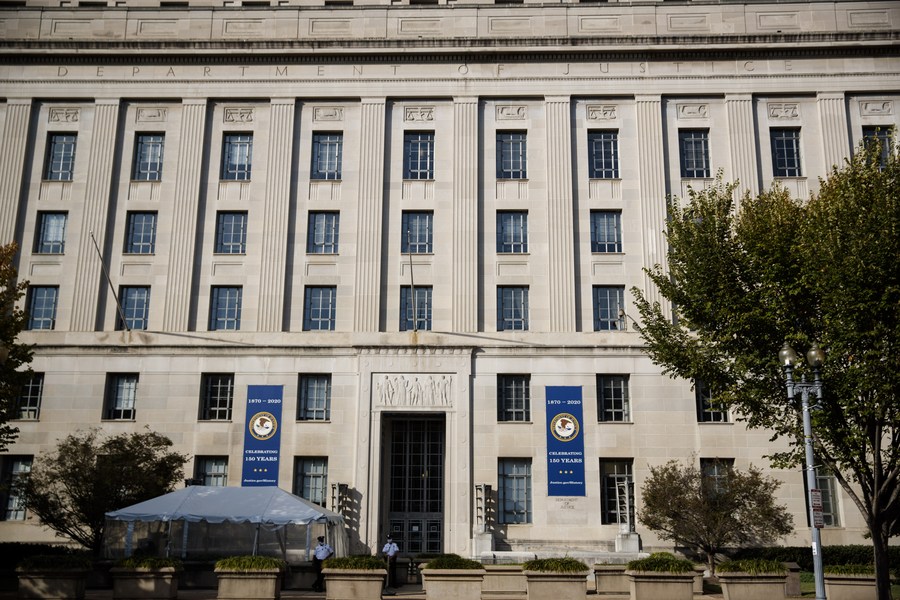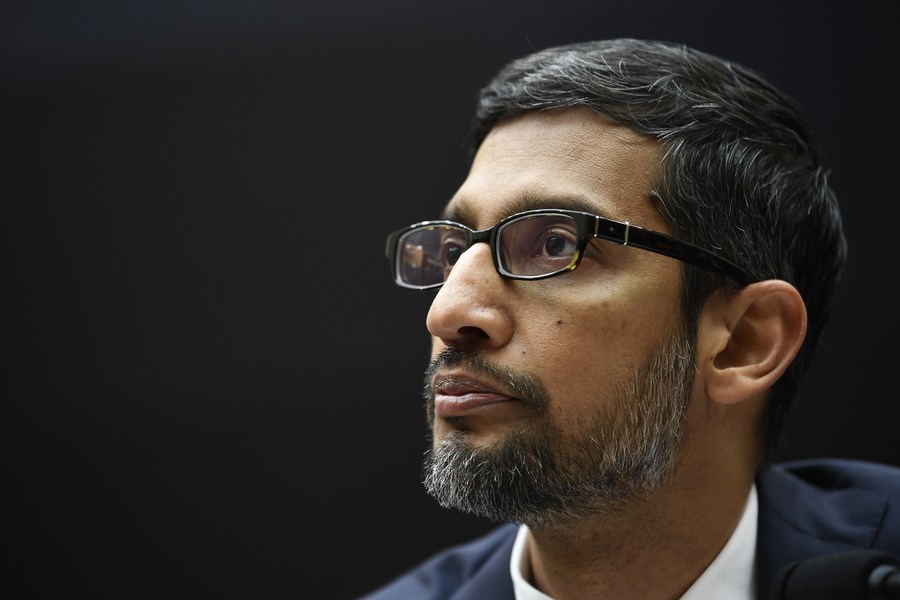
Photo taken on Oct. 20, 2020 shows the U.S. Department of Justice building in Washington, D.C., the United States. (Photo by Ting Shen/Xinhua)
\”Users today have more search options and more ways to access information online than ever before,\” John Schmidtlein said, representing Google.
SAN FRANCISCO, Sept. 12 (Xinhua) — The U.S. Department of Justice\’s antitrust case against Google kicks off on Tuesday in Washington, D.C.
In the government\’s opening statements, Department of Justice attorney Kenneth Dintzer argued that Google has maintained an illegal search engine monopoly since at least 2010.
\”This case is about the future of the internet, and whether Google\’s search engine will ever face meaningful competition,\” Dintzer said.
He said that Google signed pricey agreements with some of the giant providers of computers and smartphones. For instance, Google pays more than 10 billion U.S. dollars per year to clients like Apple so Apple iPhones\’ default search results will come from Google. That, coupled with Android phones coming pre-equipped with Google Search, has rigged the market in favor of Google.

Google CEO Sundar Pichai testifies before U.S. House of Representatives Judiciary Committee during a hearing \”Transparency & Accountability: Examining Google and its Data Collection, Use and Filtering Practices\” on Capitol Hill in Washington D.C., the United States, on Dec. 11, 2018. (Xinhua/Liu Jie)
Google\’s lawyers countered that the company welcomes competition, and it\’s not Google\’s fault that the competition stinks.
\”Users today have more search options and more ways to access information online than ever before,\” John Schmidtlein said, representing Google.
He took Microsoft\’s search engine Bing for example, noting that people could always make Bing their default search engine, but \”at every critical juncture, the evidence will show, they were beaten in the market.\”
Schmidtlein also fired at other search engines except for Bing, complaining that the Department of Justice believes \”forcing people to use inferior products in the short run will somehow be good for competition in the long run.\”
The trial is expected to last for months and will feature testimony from big-tech executives, according to market observers.
